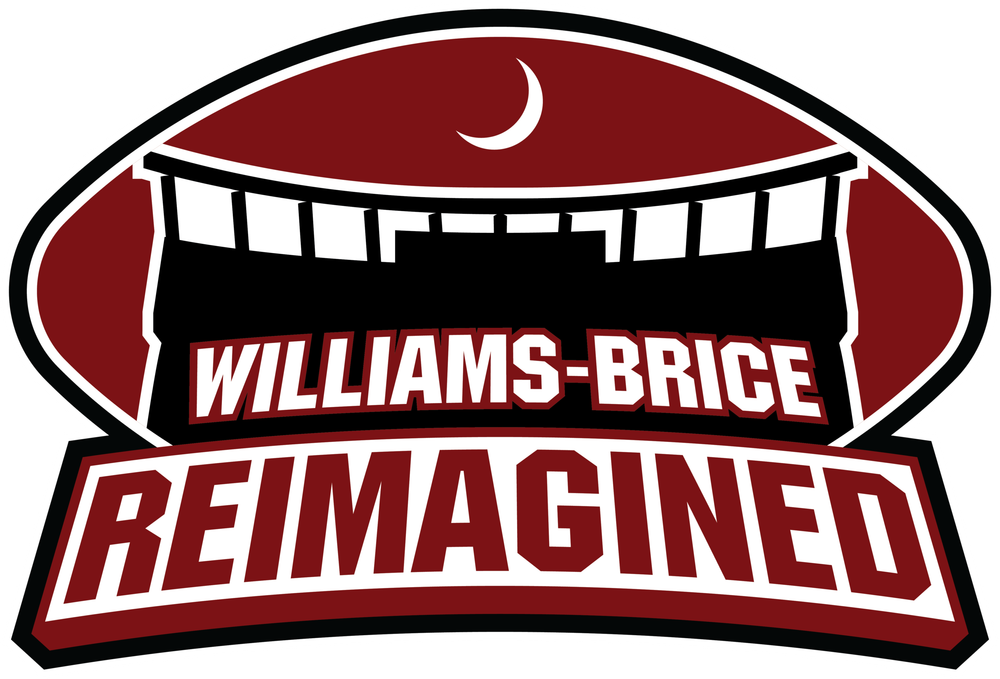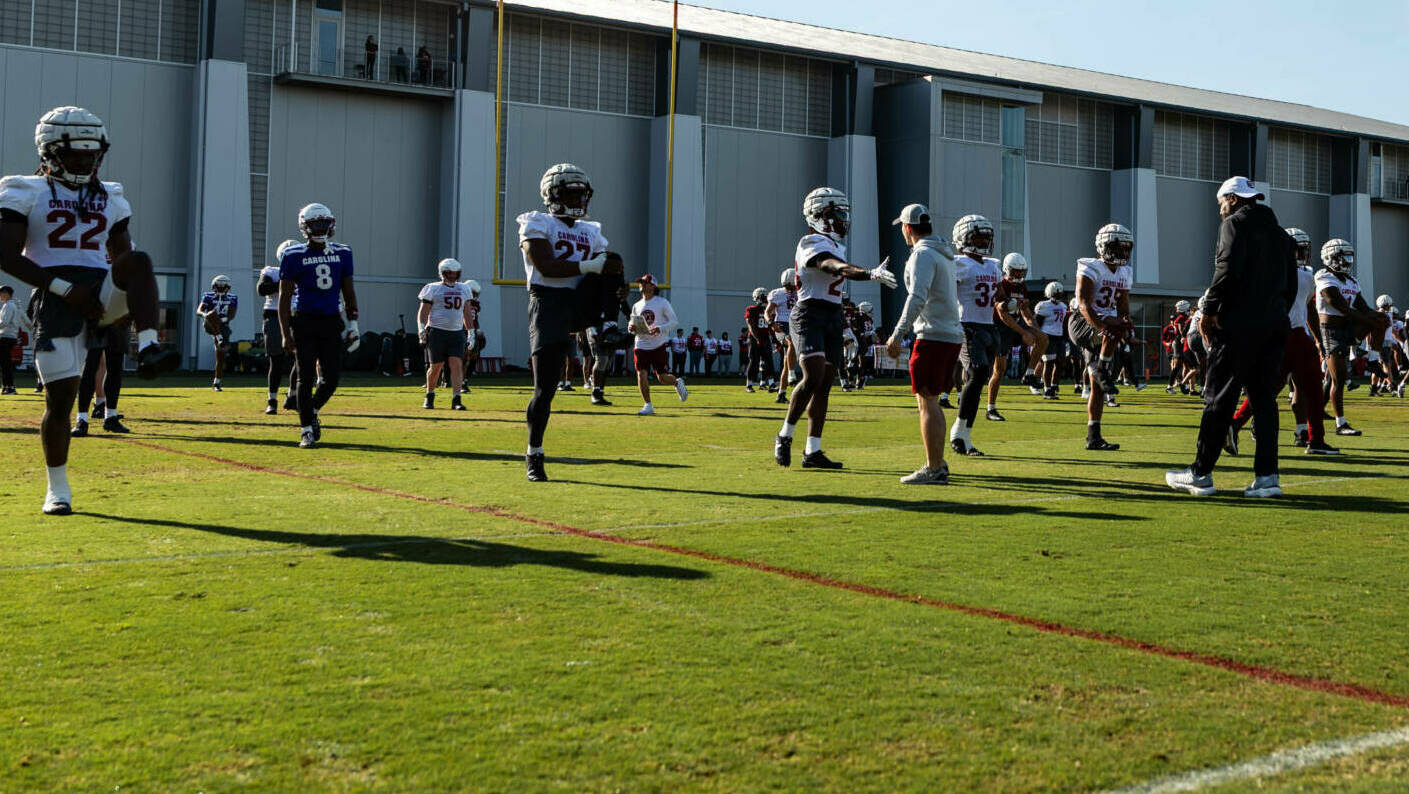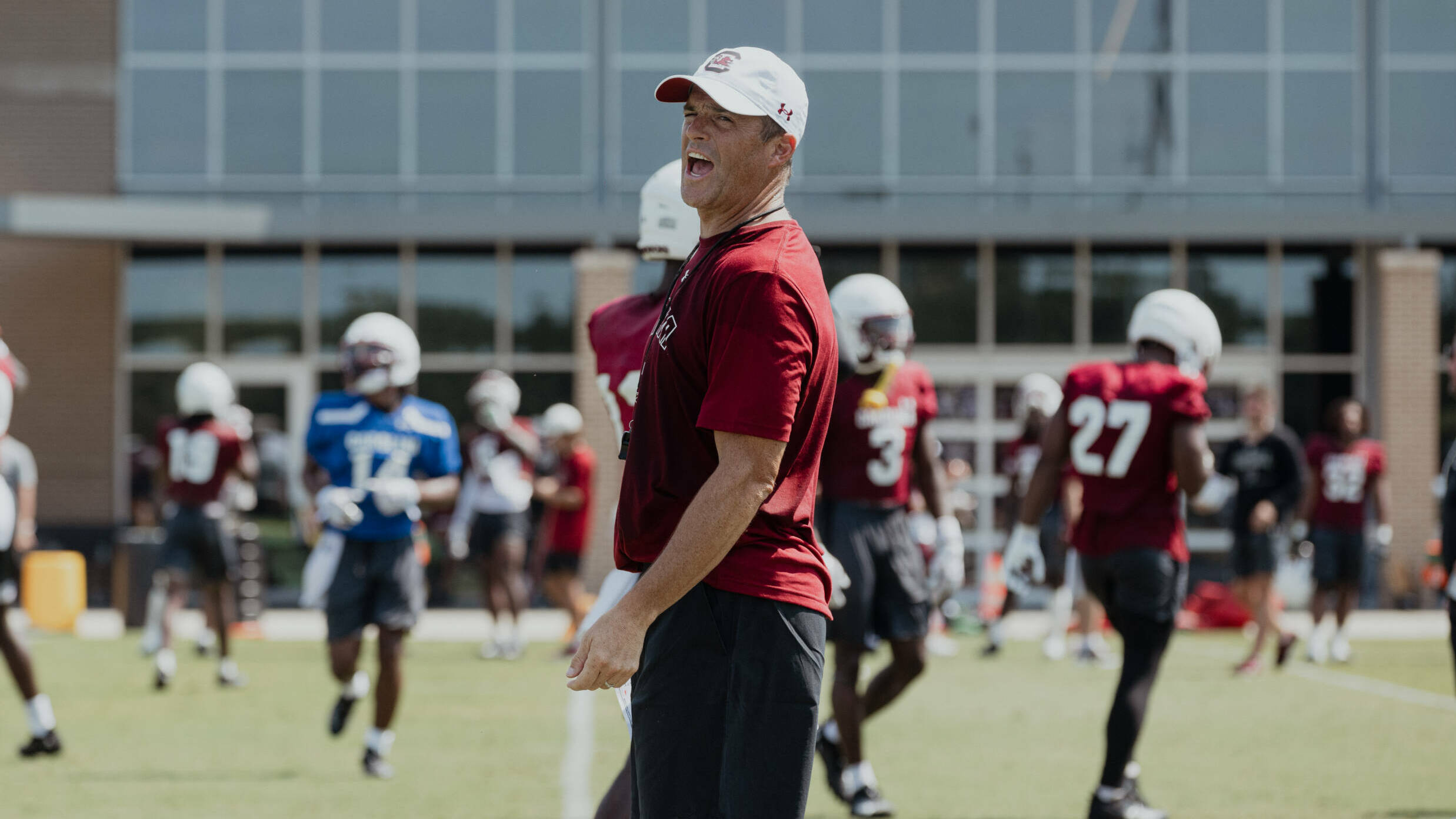Sept. 6, 2016

Hugh Merck didn’t have the typical college football career. Between 1950 and 1955, Merck bounced between playing for South Carolina, military service, and a chance to play professionally before returning to the Gamecocks. What hasn’t changed, as he prepares to celebrate his 87th birthday this month, is his passion for his alma mater.

“I just enjoyed playing for Carolina,” Merck said. “It’s a great school.”
“When we lived in Columbia, he would go to games for all the sports whether it was baseball or volleyball or whatever,” said his middle daughter, Cathy Merck Tyson. “If there was something going on there, he wanted to go. We all have great memories growing up of going to games and going to the Letterman’s Lounge.”
The former defensive tackle (#66) still has a great sense of humor and is also passionate about the instate rivalry.
“With the Clemson confrontation, we won three Big Thursday games, and Clemson won one, accidentally,” Merck chuckled. “They beat us in the last game I ever played in. That kind of made for a bad day for me.”
After a stellar high school career growing up in the arch rival’s back yard in Liberty, S.C., located in Pickens County, Merck recalls having more than 20 scholarship offers from various colleges and universities.
“I narrowed it down to South Carolina, Clemson and Georgia,” Merck said. “I went down to visit Clemson, and I couldn’t get very close to the guy (coach) there because every time he spoke, he was spilling tobacco juice and cursing. So that’s what made me decide to go to Carolina.”
“Dad never could have afforded to go to college if he hadn’t earned that scholarship,” Tyson said. “Carolina afforded him, and our entire family, a really wonderful education and lifestyle. We have a lot of gratitude to the University.”
Back then, you didn’t wait to get drafted. You volunteered.
Hugh Merck
Merck was coached by Rex Enright, and he took a liking to his style right away.
“He was a fine coach,” Merck said. “He wasn’t a screamer when the team wasn’t playing well like some of the other coaches were.”
With the start of the Korean War, Merck and a few teammates put part of their Gamecock careers on hold.
“Back then, you didn’t wait to get drafted,” Merck said. “You volunteered.”
Merck laughed as he explained how he and his friends were headed to the enlistment office for the United States Navy, but ended up in the wrong room and enlisted in the Coast Guard instead.
“The recruiting office for the Navy was on the second floor of the Post Office,” Merck said. “The Coast Guard office was there too. We saw the guy in uniform and it looked like the Navy. So we didn’t read any signs. When we found out we were in the Coast Guard office, we stood up to leave. Then he said that the Coast Guard has a three year enlistment, and the Navy has a four year enlistment. So we did an about-face and sat down to join the Coast Guard.”
After another good laugh about his entrance into the military, Merck explained how his service ended up being a different experience than expected.

“I played two years of (military) service ball,” Merck said. “When they found out we were athletes, they didn’t want us to fight, so they put us on some football teams. It was a different time. We played two years against military teams from other bases.”
When his military commitment ended, Merck returned to South Carolina to resume his college career. Following the 1953 season, Merck was drafted by the Washington Redskins in the spring of 1954, but a knee injury in training camp ended his professional career before it even started. With the rules being much different than they are today, Merck rehabilitated his knee while sitting out the 1954 season, and because he still had eligibility remaining, he was able to return for his final season with the Gamecocks in 1955.
“I had planned to teach and coach when I was done with school,” Merck said. “I majored in education, so I wanted to work at a high school. I had a wife and two kids then, and when I found out what the pay was, I knew I wasn’t going to make enough money for us to live.”
Merck began working for a large trucking company instead and stayed in that field for 19 years. He worked in the transportation industry before retiring when he was 51 years old to take a position as the director of the Fellowship of Christian Athletes for the State of South Carolina where he worked for five years. He later earned a graduate degree from Columbia Bible College and spent time building homes.
A generous donor to South Carolina Athletics, Merck is now living in Hilton Head, S.C. He and his wife, Doris, still enjoy watching the Gamecocks and visiting with their three daughters; Gloria, Cathy and Cindi.












